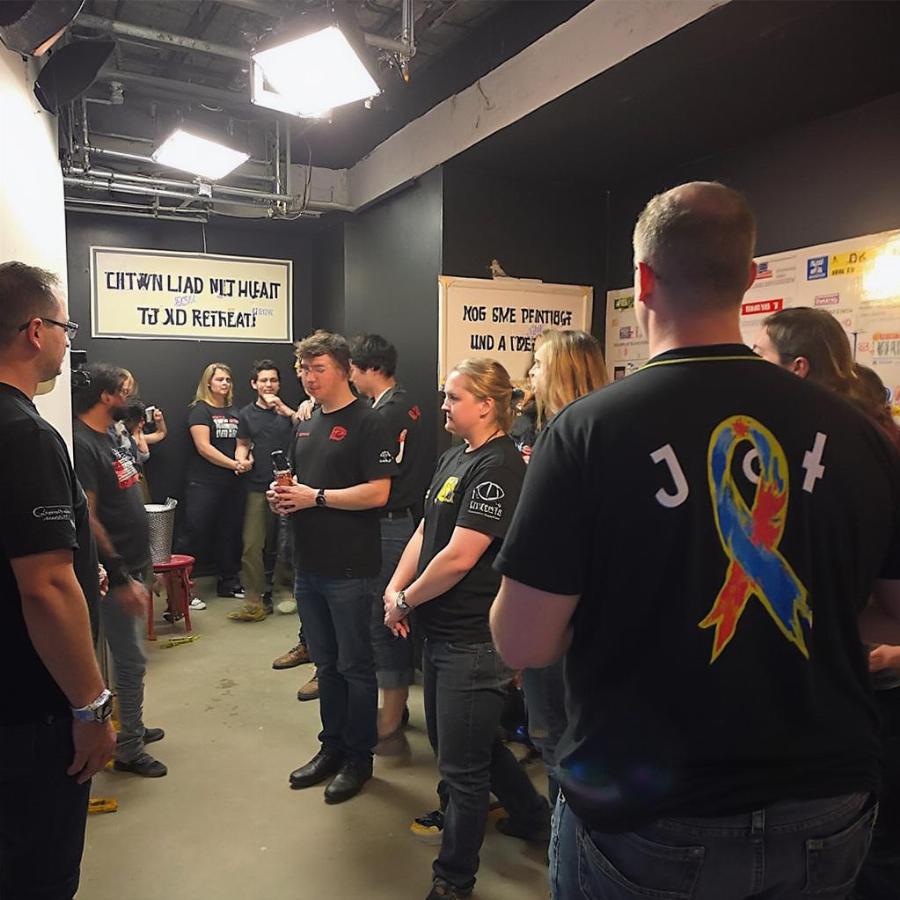Actors with Autism Spectrum Disorder: A Look at Neurodiversity in Hollywood

The world of acting demands empathy, emotional depth, and an ability to inhabit different characters. What may surprise many is that some actors navigating the complexities of the autism spectrum disorder (ASD) bring a unique perspective and talent to the craft. This exploration delves into the world of Actors With Autism Spectrum Disorder, celebrating their contributions and examining the evolving landscape of neurodiversity in Hollywood.
There’s a common misconception that autism spectrum disorder acts as a barrier to artistic expression. In truth, the very nature of ASD can be a wellspring of creativity. The focused attention, detailed observation, and unique ways of processing information, often characteristic of individuals with ASD, can be channeled into powerful and authentic performances. The ability to recall lines verbatim, a dedication to perfecting nuances of character, and an unwavering focus on the task at hand can be incredibly valuable assets in the acting world. These qualities are not simply compensating for perceived limitations but are, in fact, strengths that enrich the artistic process.
Understanding Autism Spectrum Disorder in the Context of Acting
Autism spectrum disorder encompasses a broad range of neurodevelopmental conditions characterized by differences in social interaction, communication, and patterns of behavior. It’s important to remember that autism is a spectrum, meaning its manifestation varies greatly from person to person. Some individuals with ASD may be highly verbal and intellectually gifted, while others may require significant support with communication and daily living. This diversity within the spectrum extends to how ASD influences an individual’s acting abilities.
For some actors with autism spectrum disorder, the structured environment of a film set can provide a sense of comfort and predictability. The clear expectations, defined roles, and scripted dialogue can mitigate the anxieties often associated with social situations. The act of embodying a character can also serve as a protective layer, allowing actors to explore emotions and express themselves in ways they might find challenging in their daily lives.
The Challenges Faced by Actors with Autism Spectrum Disorder
While ASD can offer unique advantages in acting, it’s also essential to acknowledge the challenges faced by individuals on the spectrum. The sensory sensitivities common in ASD, such as heightened responses to light, sound, or touch, can make the bustling environment of a film or theater production overwhelming. Social interactions on set, including navigating complex interpersonal dynamics and understanding unspoken cues, can also present difficulties. Furthermore, the casting process itself can be daunting, with auditions often requiring improvisation and social fluidity, skills that can be particularly challenging for some individuals with ASD.
The entertainment industry, despite recent progress, still lacks widespread awareness and understanding of autism spectrum disorder. This can lead to missed opportunities for talented actors and a lack of appropriate support systems on set. Change requires not only greater inclusivity in casting but also a willingness to adapt working practices to accommodate the needs of neurodiverse individuals.
Celebrating Success Stories and Promoting Inclusion
Fortunately, the landscape is shifting. There are increasing numbers of actors with autism spectrum disorder finding success in film, television, and theater, proving that talent transcends diagnosis. Their visibility not only challenges stereotypes but also inspires aspiring actors on the spectrum to pursue their dreams.
As the entertainment industry becomes more aware of the contributions of neurodiverse individuals, we see a move towards greater inclusivity. Organizations and initiatives are emerging to support actors with ASD, providing training, mentorship, and access to opportunities. This growing support network is crucial for creating a more welcoming and accessible environment for talented individuals on the spectrum.
What Does the Future Hold for Neurodiversity in Acting?
The future of neurodiversity in acting looks promising. As we move towards greater understanding and acceptance of autism spectrum disorder, we can expect to see even more talented actors with ASD gracing our screens and stages. This increased representation is essential, not only for the individuals involved but for society as a whole. By showcasing the diverse talents and perspectives of individuals with ASD, we can challenge stereotypes, promote inclusivity, and enrich the artistic landscape.

The continued progress relies on proactive measures to create a more inclusive and supportive environment for actors with autism spectrum disorder. This includes educating casting directors and production teams about ASD, providing sensory-friendly spaces on set, and fostering a culture of understanding and acceptance. The journey towards true inclusion requires ongoing dialogue, collaboration, and a commitment to dismantling barriers.
How to Support Actors with Autism Spectrum Disorder
Supporting actors with ASD requires understanding and accommodating their unique needs. This can involve providing clear and concise instructions, minimizing sensory overload on set, and allowing for breaks when needed. Creating a supportive environment where neurodiverse individuals feel valued and respected is key to unlocking their full potential. Simple adjustments can make a significant difference in enabling actors with ASD to thrive in the demanding world of entertainment.
The conversation around autism spectrum disorder and acting is ongoing and evolving. It requires not only awareness but also action. By embracing neurodiversity, the entertainment industry can unlock a wealth of untapped talent and enrich the world of storytelling.
In conclusion, actors with autism spectrum disorder are making invaluable contributions to the art of acting, bringing unique perspectives and talents to the screen and stage. By fostering a more inclusive and supportive environment, we can empower these individuals to thrive, challenge societal perceptions of ASD, and celebrate the rich tapestry of human experience. The ongoing journey towards neurodiversity in Hollywood is a testament to the power of art to transcend boundaries and celebrate the unique gifts of every individual. As the awareness grows, so does the potential for groundbreaking performances and a more representative and inclusive entertainment landscape.




